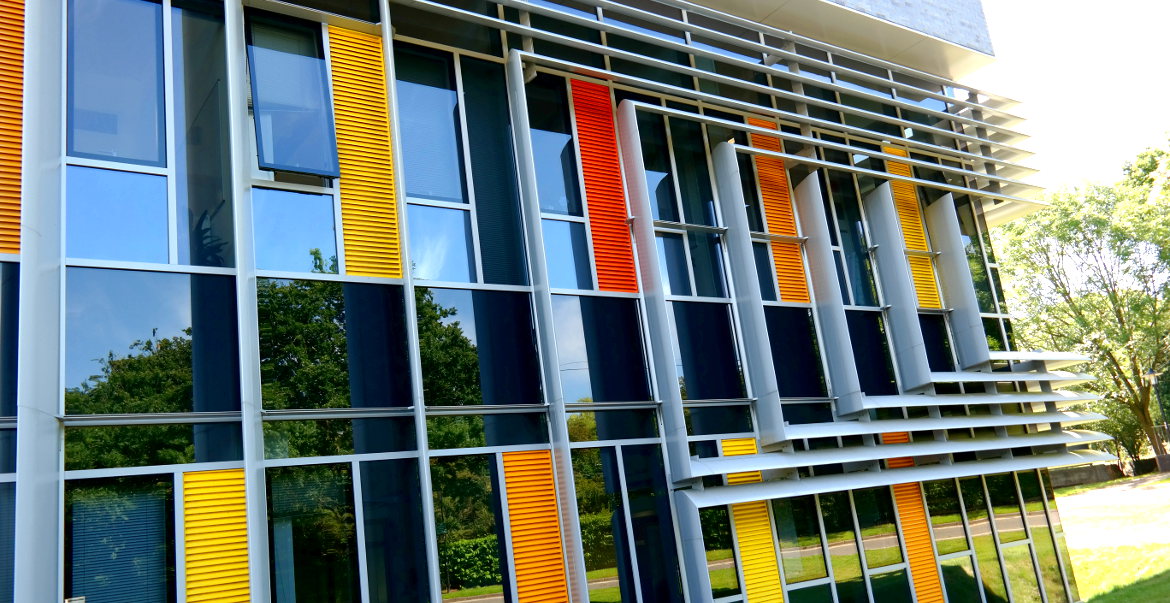Biomedical Sciences
Inspired minds, inspired places
The Biomedical Sciences Directorate (BMS) has a vision to build world-class Discovery Science and Translational Medicine programmes in partnership with the University Hospital Coventry & Warwickshire (UHCW); deliver interdisciplinary educational programmes; and transmit new knowledge to the wider world through an exciting public engagement interface.
Home to 42 Principal Investigators, including clinical and non-clinical academics, BMS has several joint appointments with other departments to drive interdisciplinary work.

Leading edge research centres and programmes
Our Principal Investigators lead key University-wide research centres, externally supported research programmes and innovative education initiatives:
Events and seminars
CMCB Lab Talk - Koester lab
CMCB Lab Talk - Cross lab
BMS Seminar: Functional genomics of human immune responses in tuberculosis, Professor Mahdad Noursadeghi, Professor of Infectious Diseases, Division of Infection and Immunity, University College London
Centre for Early Life (CfEL) Symposium: From Gametes to the First Five Years
Biomedical Sciences News
Mechanochemistry of Molecular Motors and Cytoskeletal Filaments, a focused scientific meeting, 8-9 May 2026, University of Warwick
A focused scientific meeting on cytoskeletal filaments and molecular motors - the cellular machinery that drives cell division, cell migration and the motility and correct distribution of organelles. The programme will include inspiring keynotes from Joe Howard and Kristen Verhey, and provide many speaking opportunities for postdocs and students. Further, we will celebrate the career of Rob Cross and his contributions to kinesin and tubulin biophysics as he transitions into life as Emeritus Professor. The event will also be available via Livestream.
Multiparametric Electrogram Feature Analysis for Ventricular Tachycardia Functional Extra-Stimulus Substrate Mapping
Meet our Principal Investigators
Find out more about our PIs and the important work they lead on.

Inspired minds, inspired places
The Biomedical Sciences Directorate (BMS) has a vision to build world-class Discovery Science and Translational Medicine programmes in partnership with the University Hospital Coventry & Warwickshire (UHCW); deliver interdisciplinary educational programmes; and transmit new knowledge to the wider world through an exciting public engagement interface.
Home to 42 Principal Investigators, including clinical and non-clinical academics, BMS has several joint appointments with other departments to drive interdisciplinary work.

Leading edge research centres and programmes
Our Principal Investigators lead key University-wide research centres, externally supported research programmes and innovative education initiatives:
Leading edge research centres and programmes
Our Principal Investigators lead key University-wide research centres, externally supported research programmes and innovative education initiatives:
Events and seminars
WMS and SLS Microbiology and Infectious Diseases Seminar: Dr Laia Pasquina Lemonche, The University of Sheffield
CMCB Lab Talk - Koester lab
CMCB Lab Talk - Cross lab
BMS Seminar: Functional genomics of human immune responses in tuberculosis, Professor Mahdad Noursadeghi, Professor of Infectious Diseases, Division of Infection and Immunity, University College London
Centre for Early Life (CfEL) Symposium: From Gametes to the First Five Years
Biomedical Sciences News
Mechanochemistry of Molecular Motors and Cytoskeletal Filaments, a focused scientific meeting, 8-9 May 2026, University of Warwick
A focused scientific meeting on cytoskeletal filaments and molecular motors - the cellular machinery that drives cell division, cell migration and the motility and correct distribution of organelles. The programme will include inspiring keynotes from Joe Howard and Kristen Verhey, and provide many speaking opportunities for postdocs and students. Further, we will celebrate the career of Rob Cross and his contributions to kinesin and tubulin biophysics as he transitions into life as Emeritus Professor. The event will also be available via Livestream.
Multiparametric Electrogram Feature Analysis for Ventricular Tachycardia Functional Extra-Stimulus Substrate Mapping
Meet our Principal Investigators
Find out more about our PIs and the important work they lead on.


